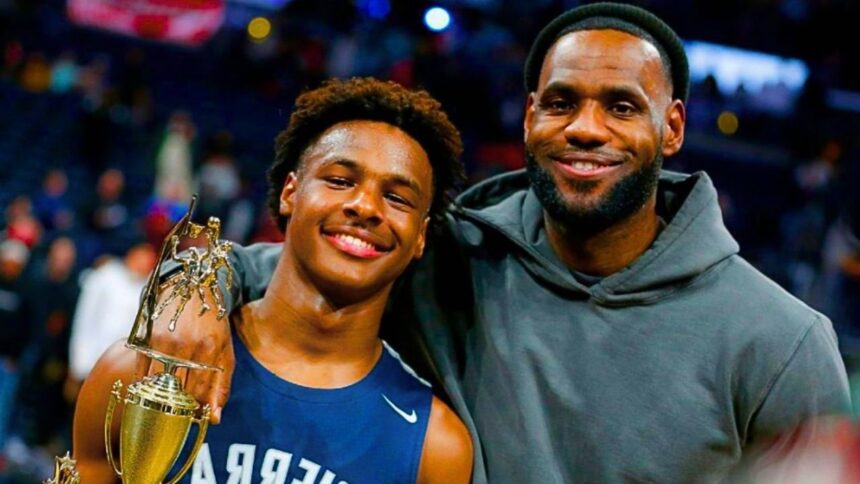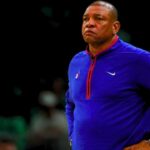In the world of sports, the children of legendary athletes often face the daunting task of living up to outsized expectations. This issue was recently brought to the forefront by NFL Hall of Famer Deion Sanders during his appearance on the “All the Smoke” podcast. Sanders, who knows the pressures of the spotlight all too well, shared his thoughts on the challenges faced by LeBron James’ son, Bronny James, as he navigates his burgeoning basketball career under the colossal shadow of his father.
Deion Sanders, also known as ‘Coach Prime,’ drew parallels between the experiences of his own children and those of Bronny. He highlighted a sentiment that resonates deeply within the sports community: the public’s desire to see the progeny replicate the iconic successes of their parents. “I could see the pressure because I got boys. And when he [Bronny James] steps out there, they want to see the Daddy. They ain’t checking for Bronny, they want to see the daddy,” Sanders explained.
This reflection sheds light on a significant issue—Bronny is often evaluated not as an individual, but as an extension of LeBron. With LeBron James being a global basketball icon and a multiple-time NBA champion, the expectations placed on his son are immense and, often, unrealistic.
Sanders, who has mentored his sons Shedeur and Shilo through their own athletic careers, also shared the crucial advice he offers them, which is equally applicable to Bronny: “You can’t be me. God has graced me and gifted me, and just separated me, and set me aside. But give me the best shot, dog.” This advice underscores the importance of striving for personal excellence rather than trying to mimic someone else’s path.
Moreover, Sanders pointed out the broader implications of such pressures, noting that it’s about giving your best shot every day rather than trying to step directly in the footsteps of a legendary parent. “Don’t have to step with me. Just give me the best shot every day. And it’s sad when they look at that young man and see Bron,” he added, highlighting the emotional weight that these young athletes carry.
The expectations for star children like Bronny are further amplified by the media and fan scrutiny, much like the pressures faced by other children of sports stars or celebrities. The comparison to unique talents such as NBA’s rising stars Victor Wembanyama and Nikola Jokić, or track legend Florence Griffith-Joyner, illustrates that greatness comes in many forms and should not be measured by one’s lineage.
Sanders’ insightful comments come at a time when understanding and empathy are crucial for the mental and emotional well-being of young athletes like Bronny. By sharing his perspective, Sanders hopes to encourage a shift in how the public, media, and fans view and treat the children of sports legends.
The broader sports community could benefit from heeding Sanders’ advice, fostering an environment where young talents like Bronny can thrive on their terms, appreciated for their efforts and achievements, not just their famous last names.
As Coach Prime eloquently puts it, the goal for these young athletes should be to give their best shot, day in and day out, without the burden of living up to an iconic parent’s legacy. This philosophy not only supports healthier career development but also helps in cultivating a more supportive and understanding sports culture.




